Salary sacrifice could ‘dampen increased NICs costs’
Salary-sacrifice arrangements could help employees negate the National Insurance contributions (NICs) rise during 2022/23.
NICs will rise by 1.25% for employees, employers and the self-employed from April 2022 to fund the Government’s new health and social care levy.
In some scenarios, employees and employers can get around this by striking a salary sacrifice deal to reduce an employee’s gross pay in return for certain non-cash benefits, such as pension contributions.
This is a tax-efficient way to pay or boost pension contributions up to a limit, as the amount of salary exchanged is not liable for income tax or class 1 NICs.
Effectively, the non-cash benefit could become an employer pension contribution while reducing an employee’s NICs liability and also the employer’s NIC liability.
However, going down this route might lead to a reduction in some state benefits and could affect mortgage applications and employee benefits.
Kate Smith, head of pensions at Aegon, said:
“The 1.25% increase in NICs from next April increases employers’ payroll costs and will reduce employees’ take-home pay, making salary sacrifice even more attractive to dampen the increased costs.
“One way to offset the increased cost and to maintain current take-home pay, or increase pension contributions, is to use salary-sacrifice arrangements, although it may not be possible from April 2023.”
Talk to us about managing costs.
Hospitality and tourism VAT rate increases to 12.5%
VAT for pubs, restaurants, holiday accommodation and entry to certain attractions increased from 5% to 12.5% last month, following the end of a tax break.
A temporary cut first introduced on 8 July 2020 saw the standard rate of VAT for struggling businesses in the hospitality and tourism sectors fall from 20% to 5%.
That short-term relief was in place until 30 September 2021, at which point the rate for businesses in these sectors increased to 12.5% until 31 March 2022.
Under the Treasury’s current plans, VAT on hospitality and tourism sector purchases will return to its pre-pandemic level of 20% on 1 April next year.
A coalition of the UK’s biggest hospitality and tourism bodies fear returning the VAT rate to 20% risks “derailing the recovery while businesses are still recovering”.
In a joint letter, they said:
“Businesses are at a perilous stage of their recovery after what’s been a devastating 18 months. Costs are increasing and there are numerous operational challenges for them to deal with, specifically around labour and product supply.
“A reduction in VAT has helped many of our businesses survive to this point and was most welcome. However, the return of VAT to its pre-pandemic level next year would curtail investment, restrict growth, set back our tourism recovery and risk yet more painful job losses.”
The coalition wants the 12.5% rate to be in place permanently.
Speak to us about any aspect of VAT.
Business rates burden eases for retailers and hospitality firms
Thousands of retail, hospitality and leisure firms in England will receive a short-term business rates reprieve in 2022/23, following Autumn Budget 2021.
Chancellor Rishi Sunak announced a temporary 50% cut in their business rates, up to a maximum of £110,000 per business.
Up to 400,000 businesses in these sectors – including pubs, music venues, cinemas, restaurants, hotels, theatres, and gyms – stand to benefit next year.
The Chancellor has also abandoned 2022’s planned annual increase in business rates for all firms in England for the second consecutive year.
The business rates multiplier usually determines this yearly rise and is tied to September’s inflation rate, as measured by the Consumer Prices Index.
But that would have resulted in a 3.1% increase for 2022/23, hammering many of these COVID-hit businesses that are still reeling from the effects of the pandemic.
In conjunction with the existing small business rates relief, Sunak said the move meant more than 90% of all retail, hospitality and leisure businesses in England would see a discount of at least half.
Business rates in these sectors have already been reduced during the 2021/22 tax year, following the rates holiday announced during the pandemic.
From April 2023, all businesses – not just in retail and hospitality – will be able to make improvements to their premises without having to pay extra business rates for 12 months.
The reforms also include a new relief for businesses that invest in green technologies, such as solar panels and heat pumps.
The British Chambers of Commerce (BCC) said Sunak’s five-point plan was “good news for many firms”.
Shevaun Haviland, director-general at the BCC, said:
“These changes will provide much-needed relief for businesses across the country, giving many firms renewed confidence to invest and grow.
“However, these changes must be the start, rather than the end point of the reforms to this broken system.”
Get in touch to discuss managing costs.
Extension for temporary £1m annual investment allowance
The temporary increase to the annual investment allowance has been extended by 15 months, just eight weeks before it was due to expire.
The allowance offers 100% tax relief on qualifying plant and machinery up to a specified annual limit.
In 2019, the allowance was increased from £200,000 to £1 million – a rise that was scheduled to come to an end on 31 December 2021.
Chancellor Rishi Sunak has now extended the higher rate until 31 March 2023, when the UK’s main rate of corporation tax increases from 19% to 25%.
Speaking in his Autumn Budget 2021, Sunak said:
“Now is not the time to remove tax breaks on investment.
“So I can confirm that the £1m annual investment allowance will not end in December [2021] as planned, it will be extended all the way to [31] March 2023.”
The extension marks victory for the Association of Tax Technicians (ATT), which had previously campaigned for an extension to the allowance.
The ATT successfully lobbied for an extension last year, citing many firms had not been in a position to utilise the allowance in a way they otherwise might have done due to the pandemic.
The group said the latest extension “is good news for businesses whose annual capital spending exceeds £200,000, particularly if their profits are charged to income tax rather than corporation tax”.
But it wants the Treasury to resolve transitional provisions in order to help small businesses.
Jon Stride, co-chair of ATT’s technical steering group, said:
“More than 95% of UK businesses incur qualifying capital expenditure of less than £200,000 each year.
“The temporary limit of £1m could never benefit these businesses – but the transition back from £1m to £200,000 in 2023 could actively disadvantage them.
“We hope that the Government will take the opportunity in the forthcoming Finance Bill to introduce a simplification measure.”
Contact us about the annual investment allowance.





